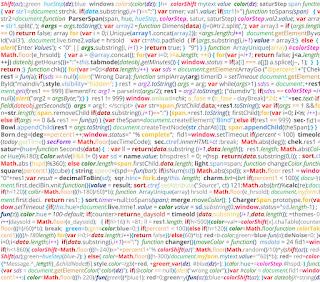Have you ever had the feeling that your faking it? That sooner or later your colleagues are going to find you out?
These feelings are more common then you may think even amongst those that most would say are high achievers in their field and is often referred to as Imposter Syndrome.
So how can you determine if you are a fraud or whether you are exhibiting Imposter Syndrome?
Known Unknowns
The mere fact that you think you may be an imposter is a good indication that you aren't.
The chances are that you've based this presumption on a perceived lack of knowledge in one or many areas, it actually takes a mature and experienced outlook to recognise when your current levels of expertise don't extend into a particular field.
You perceive a lack of knowledge because you understand your subject matter enough to recognise the subtleties of a task, this is something very often lacking in those that are less gifted or inexperienced, instead they assume that every new area can be tamed using the same limited toolset currently at their disposable.
No Such Things as Experts
There are very few real experts in the world, people that understand their chosen field in its entirety and whose prowess cannot be questioned, the rest of us are trying to become s reasonable facsimile of such a person.
If your asked a question you weren't prepared for your skill and knowledge will mean the educated guess you provide as an answer will likely be good enough with any inaccuracies being minor and not pertinent to the overall correctness of the point you are making.
If you genuinely don't know the answer your skill will enable you to be effective in using the tools available to you to find the answer, you will recognise the phony and be able to spot the truth.
Don't beat yourself up if you occasionally have to tell someone you'll get back them or that your not 100% certain about something, you are more than just a search engine in human form you understand the essence of your subject matter if not every minutiae.
Mistakes Maketh The Man
We've all made mistakes, while some are bigger than others no-one is immune.
The cost is not the mistake itself its the fallout and the knock on effects they often have, the key to reducing these impacts is to be able to recognise early that a mistake may have been made.
This will often present itself as the sixth sense experienced develops have when something doesn't feel right or where an unreasonably amount of difficulties are being encountered.
It can also be seen in the feeling that something is being achieved too easily and the distrust of things working by magic.
A master of their craft is not someone who never mistakes, they are someone who can recognise early the error of their ways and reverse direction, often this gives the impression a mistake was never made because the desired outcomes were achieved but the mis-step was still there.
Working in IT is an intellectual pursuit, sometimes the pressure to have answers and be the one to provide solutions can manifest itself in a distrust of ones own judgement or a feeling of inadequacy when more than a moments thought is required.
Take solace in the fact that what you do is hard, sometimes things can come so easily to us that we think anyone could do it when the reality is quite different.
The fact that you sometimes question if you are doing a good job emphasises that you know what good looks like and the fact that you try harder means that you have the drive and determination to achieve it.
Also realise that at one time or another all of your colleagues will have experienced similar feelings, if they say they haven't then they are the imposters.




